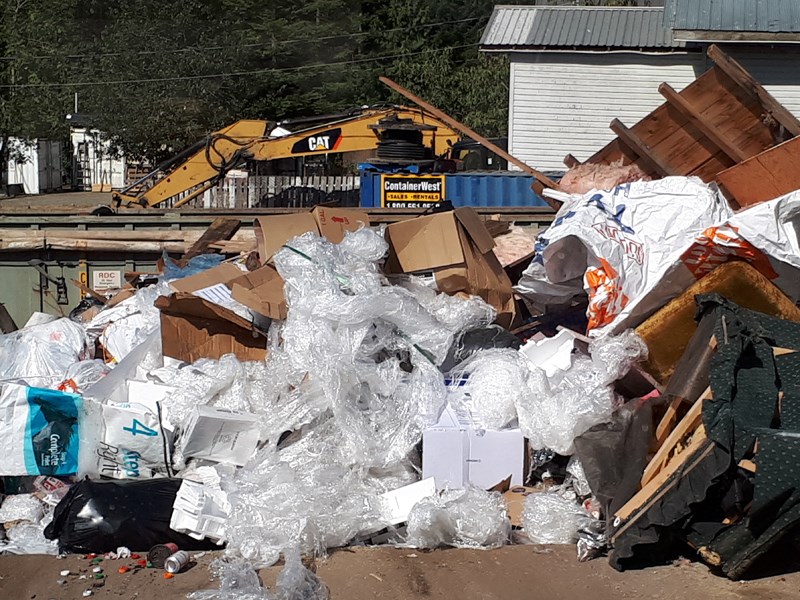Around the globe, entire regions are waking up to the reality that we are drowning in garbage. Instead of mimicking the closed-loop patterns of the natural world where waste from one system is food for another, we are using more than our share and producing toxic byproducts to boot.
To get us back on track, places such as Metro Vancouver and our very own Powell River are declaring zero waste to be a long-term goal. Definitions for zero waste differ, some allow for burning of garbage while others, including Powell River’s, mean sending nothing to landfill or incineration.
Landfills are not long-term solutions. Contrary to popular belief, burying organics (40 per cent of our waste) creates potent greenhouse gases rather than food for soil in a composting facility.
Incineration, sometimes veiled in the glossy term “waste-to-energy,” is not the ultimate answer either. It is incredibly expensive, releases harmful nanoparticles and, perhaps most significantly, reduces the incentive to separate reusable, recyclable and compostable materials in the first place.
Zero waste is one of the main drivers to our region’s proposed 10-year Solid Waste Management and Resource Recovery Plan. When drafting the plan, an advisory committee proposed key recommendations to reduce landfill from our current 458 kilograms per person per year down to a goal of 300 kilograms by 2027.
We can all lose some “weight” by applying the waste reduction hierarchy to our daily habits:
Reduce and refuse
Stop waste before it starts. Consider bringing a basket to carry your groceries.
Reuse
Reinforce, fix and repair rather than throw away. Maybe it is time to learn how to mend a broken zipper.
Recover
Add value to a broken item. For instance, upcycle a broken rake head into a wineglass holder.
Residual
Dispose of anything remaining in a safe and responsible way after applying the first three Rs.
Bring your ideas for how we can move closer to the goal of zero waste to one of five upcoming public engagement sessions about the 10-year plan. Find out more at powellriverrd.bc.ca by clicking on the Zero in on Waste logo.
Let’s Talk Trash is Powell River Regional District’s waste-management education program.



